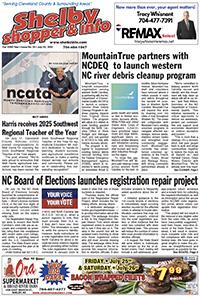| It's time for radon testing |
|
 Looking for a New Year's resolution that can help you protect your family's health in 2019? We all want to protect our families and help make our homes a safe place. Did you know that radon is the leading cause of lung cancer in non-smokers? Radon is the odorless, colorless gas that is the second leading cause of lung cancer in the United States. The effects upon the families it touches can be just as devastating as lung cancer caused by smoking.
January is National Radon Action Month. Each year more than 21,000 people in the U.S. die from lung cancer resulting from exposure to naturally occurring radon gas. What does this number mean to you? 1 in 15 American households have elevated levels of radon. What is the radon level in your home? Testing your home for radon is the only way to know and could save your life.
The NC Radon Program of the North Carolina Department of Health and Human Services educates families and homeowners about radon gas, how to test for radon gas and how to lower radon levels within a home. Lowering the radon levels in a home helps to lower the risk of lung cancer.
Free AirChek radon test kits are available for home testing in January 2019 (while supplies last). To receive your radon test kit, contact Nancy Abasiekong, Family & Consumer Sciences Extension Agent, at NC Cooperative Extension, Cleveland County Center, 704-482-4365, or come by the Cleveland County Extension Center, 130 South Post Road, Suite 1, Shelby, NC 28152. The AirChek radon test kit ($15 value) provides information on how to conduct the test and:
•Free shipping back to the lab
•Full analysis
•Online test results, and the option for a complete written report explaining the results and what you may or may not need to do next.
Information about testing and fixing radon problems is available through the NC Radon Program website www.ncradon.org. Lung cancer can strike anyone, in new or older homes and even a nonsmoker. Test your home for radon and lower your family's risk of lung cancer now as part of the January 2019 National Radon Action Month.
Submitted by Nancy Abasiekong |
|
Printer-friendly format
|
|




